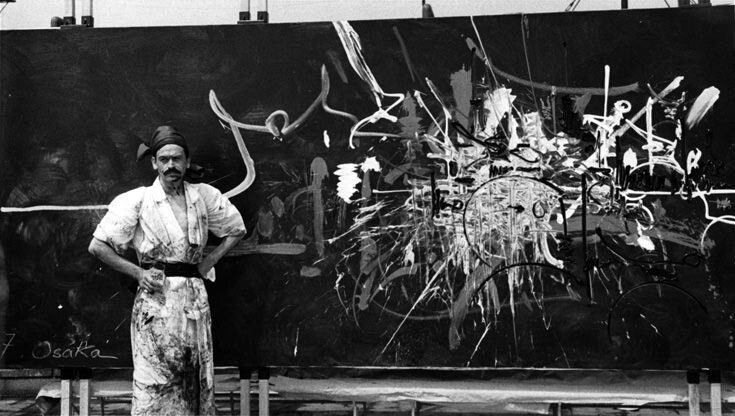Georges Mathieu - French (1921-2012)
The New School of Paris boasted erudite essayists in its ranks, but no one conceptualized and theorized art as perspicaciously as Georges Victor Mathieu. Beginning his artistic journey with figuration, he soon decided that painting required no representation to justify its existence. From dripping in his early works to Zen in the 1960s and the abolishment of the center in the 1980s, the founding father of European lyrical abstraction was constantly probing. He published a number of manifestos to define lyrical abstraction, postulating four conditions that characterized the movement: primacy of speed, no preexisting shapes, no premeditated moves, and the ecstatic mind. He considered lyrical abstraction the sixth and last of all cyclical transitions in the history of art, liberated from realism by Impressionism, shapes by Cubism, and representation by Abstractionism, “henceforth in the history of shapes as in the history of the world, the sign precedes its meaning.”

